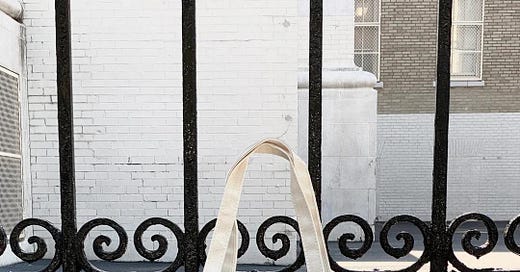This week, I read a piece by a writer (I wish I could remember his name or find the link to it) questioning the value of the ‘joy is resistance / rest is resistance’ narrative.
I hadn’t actually recognized it as a ‘narrative,’ because I’ve seen so many disparate individuals and peoples coming (or holding) to this same revelation that well…there must be something to it. Narratives don’t just emerge out of nowhere, after all.
As you might have noticed, I’m one of those who writes - and firmly believes - in the notion that joy, delight, rest, sustenance, pleasure and softness are vital to building and sustaining the kind of resistance - and ultimately revolution - that we must fight for, as Americans in this moment.
The author of the essay was arguing that these ideas are becoming performative, consumption-driven or brandished as excuses for disengagement or lack of more meaningful (in his view) forms of resistance (political, economic, etc.). His premise seems to be that joy and rest in relation to resistance make for nice hashtags and posters but not much of concrete value.
I couldn’t disagree more.
Because it’s not either-or. It’s both-and.
We can love and celebrate the days of our lives, we can gaze in awe at the beauty of winter sunsets, we can delight in art and music and nourishment. While we simultaneously call our representatives, support politicians and officials who will advance our cause, divest from corporations that have betrayed our values, march/protest and support our communities. These things aren’t mutually exclusive.
I’ve been thinking a lot about this while my son Rohan and I have been spending the long weekend with my parents, who live outside of Atlanta. They’re moving back to India later this year after 45+ years of living in the U.S., so we want to spend as much time as possible with them before they make the big move.
As always, my mom has been filling us to the brim with home-cooked South Indian food (idli, dosa, tomato chutney, her famous peanut kuzhambu), while making sure that there’s freshly cut fruit on the table every morning at breakfast. This evening, I followed her around the house as she showed me the various bits and bobs that she’d like to offload in order to downsize for the big move. I’m taking some of her treasures home with me. With my dad, Rohan has been geeking out about computers, playing lots of Uno and War and running to the Indian grocery for fresh sugar cane juice. We’ve been going to bed early and sleeping restfully.
In essence, it’s been a weekend filled with love, care and pause. A much needed one.
So if there’s a ‘narrative’ that’s about validating and celebrating these qualities amidst the chaos of the day, then I’m definitely co-signing, thank you very much.
What I don’t co-sign is the notion that we stop here. And I can understand the author’s argument that feel-good slogans and pronouncements run the risk of driving complacency, especially in this era of Instagram activism and superficial discourse. In addition, as Jesi Vega (who publishes Story and Publishing Support for BIPOC Truthtellers) reminded me, it’s important that the narratives around joy and rest not be decontextualized from their origins (the lived experience of Black women in particular).
So with all that in mind, let’s roll up our sleeves and get to work. Because it looks like we’re in for quite the fight.
While this isn’t the focus of my space here (and next week, we’ll turn to another topic entirely), last week I shared some of the resources that I’m finding to be helpful for this purpose. As and when I come across other things, I’ll continue to highlight those as well (for example, there are big protests planned in major cities across the U.S. today, as part of a nationwide mobilization called Not My President’s Day).
If there’s anything else that you’d like to bring to our attention (including ideas and experience from outside of the U.S., which are much appreciated), please use the comments to do so, with thanks in advance. We’re all in this together, after all.
One thing I know for sure is that we need to take care of our minds, bodies and spirits to fuel the kind of resistance that’s needed. Joy is vital. Rest is vital. Love is vital. Always.
In the words of Roque Dalton in “Como Tu” (“Like You”), my favorite poem of all time:
“…mis venas no terminan en mí sino en la sangre unánime de los que luchan por la vida, el amor, las cosas, el paisaje y el pan, la poesía de todos.”
“…my veins don’t end in me but in the unanimous blood of those who struggle for life, love, little things, landscape and bread, the poetry of everyone.”









I think of joy and rest as healthy food for the mind.
My high school best friend, a gal of Indian ancestry, went to India for a course in healing and food, and she said she could easily live there. I am excited for your parents. I think Goa would be my place of joy.
I love your Assemblage!